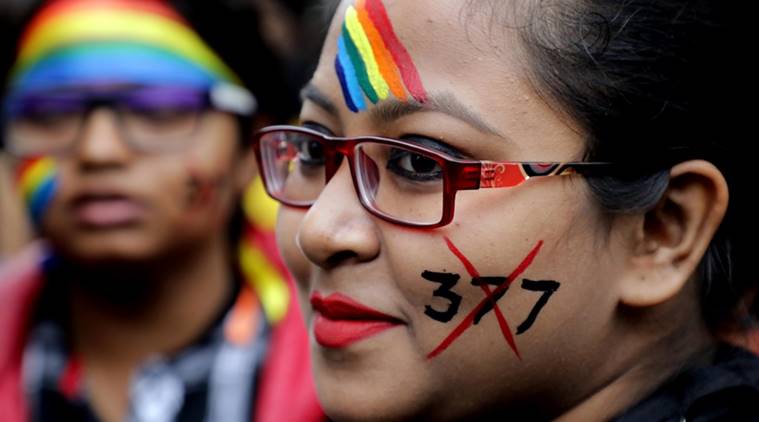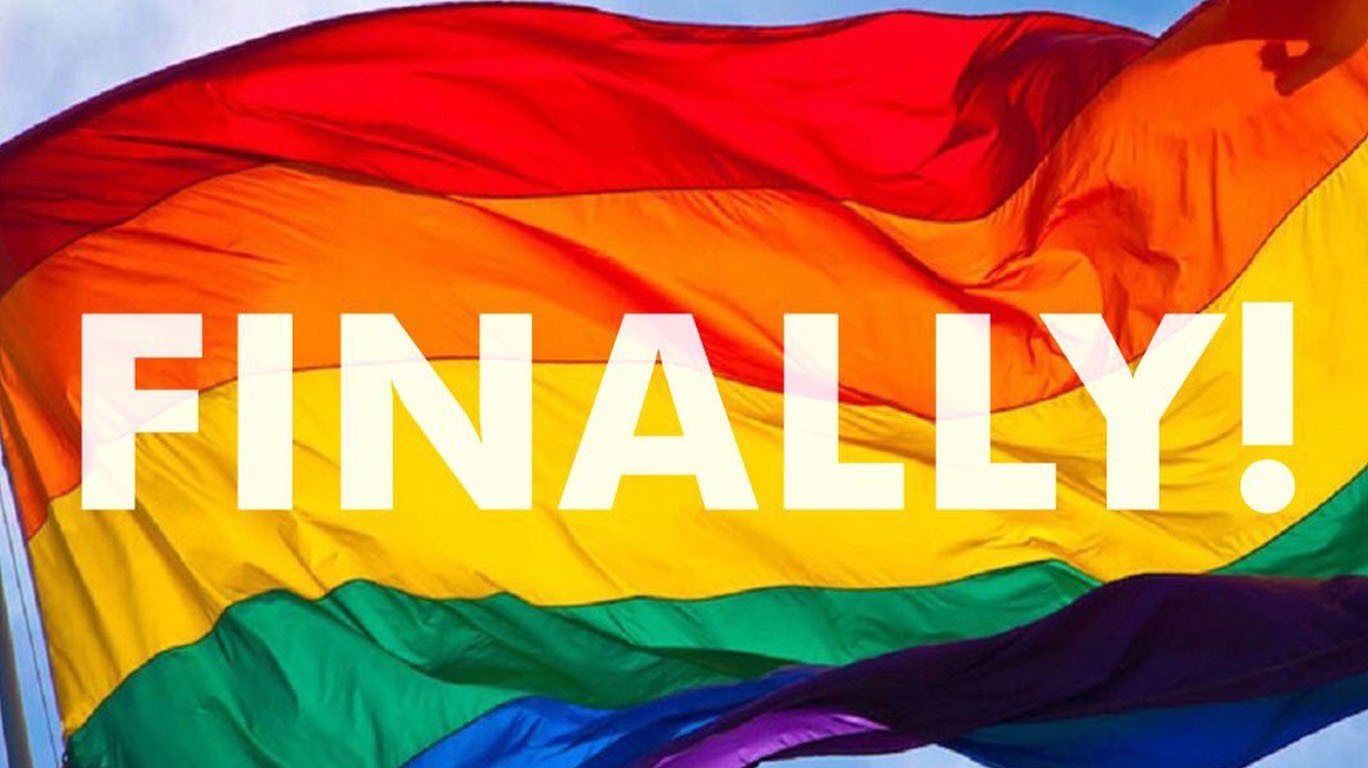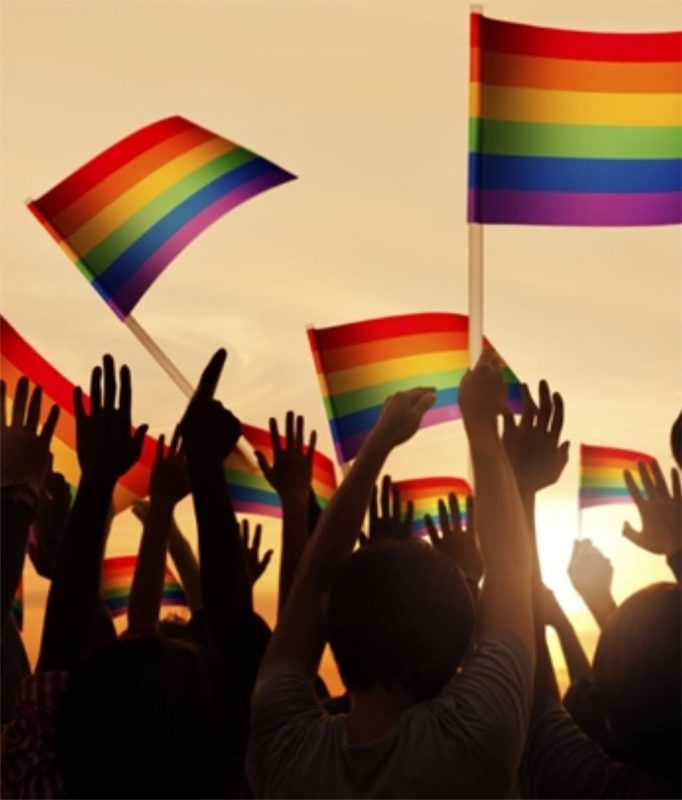
“The road to equality has never been straight but the final outcome is always worth the wait.”
This perfectly describes the struggle the lesbian, gay, bisexual, transgender and intersex (“LGBTI”) community of India has faced since the British ruled our country. Our freedom fighters were successful in blessing us with independence and freeing us from the British rule on
15th August 1947, a day we proudly celebrate as the Independence Day of India. India became a democracy on 26th January 1950 which meant that each and every citizen of the country enjoyed equality before law, freedom of speech and expression, religious and cultural freedom, freedom to practice religion and so on and so forth.
But unfortunately this was not the end of the struggle for our LGBTI community. Even though the British departed from our country for good, they left behind a law which criminalized same gender sex i.e. sexual activities between people of the same sex was considered a criminal offense. This law was laid in Section 377 of the Indian Penal Code (“IPC”). Section 377 was first introduced by British India, modeled on the Buggery Act of 1533. This section of the Buggery Act was drafted by Thomas Macaulay in 1838 and was brought into effect in 1860. It defined ‘buggery’ as an unnatural sexual act against the will of God and man, thus, criminalizing anal penetration, bestiality and homosexuality, in a broader sense.
What is Section 377 of the IPC? Section 377 of the IPC states: “Whoever voluntarily has carnal intercourse against the order of nature with any man, woman or animal, shall be punished with imprisonment for life, or with imprisonment of either description for a term which may extend to 10 years, and shall also be liable to fine.”
On 6th September 2018, in a huge victory for the civil rights and the LGBTQ community, a Constitution Bench of the Supreme Court unanimously decriminalized Section 377 of the IPC. In doing so, the learned court has recognized the sexual rights of the LGBTQ community and provided legal protection to homosexuality.
Down memory lane – Timeline of the case
- 1861: Introduction of Section 377-
Section 377 was introduced by British India, modeled on the Buggery Act of 1533. This section of the Buggery Act was drafted by Thomas Macaulay in 1838 and was brought into effect in 1860.
- 2001: Naz Foundation files petition against Section 377 in Delhi High Court
In 2001, non-governmental organization Naz Foundation filed a petition challenging the constitutionality of Section 377 in the Delhi High Court. They filed a lawsuit seeking the legalization of homosexual relations between consenting adults.
- 2003: Delhi HC dismisses Naz Foundation plea
The Delhi High Court dismissed the Naz Foundation petition, saying the body had no standing in the matter. The Naz Foundation appealed against the dismissal in the Supreme Court in 2006. The Supreme Court instructed the Delhi High Court to reconsider the case.
- 2009: Delhi HC decriminalizes homosexuality
In a landmark decision, the Delhi High Court decriminalized homosexuality among consenting adults, holding it violates the right to equality, right against discrimination and protection of life under the Indian Constitution.
- 2013: Supreme Court overturns the HC order
After the high court’s judgment, various appeals were made to the Supreme Court, challenging the High Court’s authority to change a law. In December 2013, the Supreme Court overturned the high court’s decision, after finding it “legally unsustainable.” The Supreme Court then recommended that the Parliament address the matter because only they had the power to amend the existing laws.
- 2015: Shashi Tharoor’s Private Member Bill
After the Narendra Modi-led government was sworn-in in 2014, it said it would take a decision regarding Section 377 only after the Supreme Court judgment. A year later, when Shashi Tharoor introduced a private member’s Bill to decriminalize homosexuality, the Lok Sabha voted against it.
- 2016: Five petitioners move SC against Section 377
Five petitions were filed by bharatnatyam dancer Navtej Singh Johar, journalist Sunil Mehra, restaurateur Ritu Dalmia, Neemrana hotel chain co-founder Aman Nath and businesswoman Ayesha Kapur.
The petitioners claimed their “rights to sexuality, sexual autonomy, choice of sexual partner, life, privacy, dignity, and equality, along with the other fundamental rights guaranteed under Part-III of Constitution, are violated by Section 377.” It was the petitioners’ submission that they were living in fear of harassment because of Section 377 of IPC.
- 2018: SC begins hearing on Section 377
A five-judge Constitutional bench, led by Chief Justice of India
Dipak Misra and comprising of Justices R F Nariman, A M Khanwilkar,
D Y Chandrachud, and Indu Malhotra, begins hearing petitions challenging Section 377.
- September 6, 2018: SC decriminalizes gay sex
This judgment has created history in the Indian legal system and will play a major role in giving relief to the LGBT community for all generations to come.


